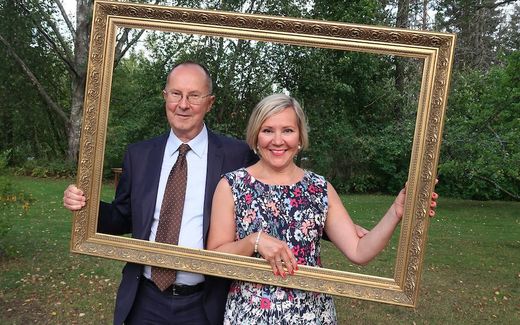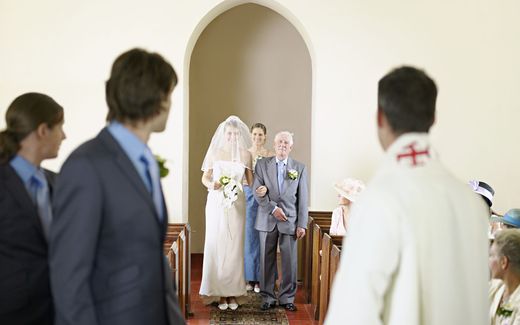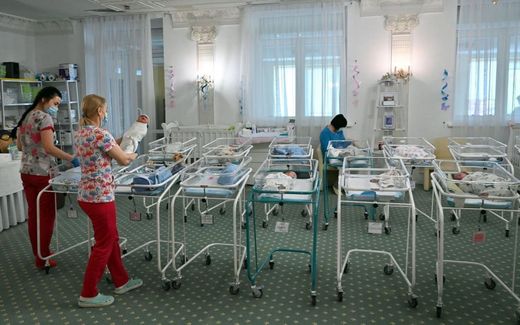Being single in a church community that circles around marriage
08-11-2022
Central Europe
Johannes Blöcher-Weil, PRO

Photo iStock
Central Europe
The number of singles is growing. Christian communities in Germany experience this too. Reason enough for Johanna Weddigen to deal with the subject scientifically. It is essential to her that singles are not stigmatised.
According to a German survey from Statista in 2021, 22.7 million people live in 1-person households in Germany. An estimated 16.8 million of them are single.
Their importance is growing not only in general but also in and for Christian communities. However, according to Johanna Weddigen, they keep hearing that their relationship status needs to change. "The idea that something is wrong if a person remains alone seems to be widespread", she says.
Johanna Weddigen
Johanna Weddigen, born in 1990, lives in Hamburg, the capital of singles. She was still single when the study came out, but not anymore.
Weddigen is on the management board of the Alpha Germany missionary society and has a teaching position at the CVJM University in Kassel on the subject of inclusion.
In 2020, she researched together with Tobias Faix and Tobias Künkler how singles live, what they believe and what occupies them. About 3,200 of them were asked about everyday life, faith, sexuality, church and their search for a partner.
The inhabitant of Hamburg researches the role of singles in Christian communities on behalf of the CVJM University in Kassel in the field of diaconal studies. In 2020, a study was published for which she surveyed 3,200 singles with the theological Tobias Faix and the social scientist Tobias Künkler. Weddigen is shocked that 30 per cent of the participants felt stigmatised by their singleness. More than half would like to be more involved in community life.
Idealised image
In many communities, the "idealised image of the bourgeois nuclear family as the primary state" still prevails. Many singles are taught that "being alone is not enough." That puts an enormous strain on one's own identity and leads to shame, Weddigen says. Experts speak of "single shaming."
Weddigen remembers a sermon in which the speaker said: "Family is the best thing the Bible has to offer." Apart from the fact that that is not true, a single person is told: Unfortunately, you have missed the best of the Bible. "The phrase came out casually, and I don't think the preacher even said it consciously, but those are the moments when you do not feel comfortable being single in the church."
Many married pastors preach from their experiences and living environment. "That is logical and good if it happens proportionately", Weddigen says. But the sermon should also appeal to people from other walks of life, she thinks. A pastor recently told her that preparing a sermon takes longer since he has taken this advice to heart. As a result, his sermons have improved, the parishioners have told him.
Weddigen considers it problematic for both sides if the family is portrayed as the theologically more correct way of life. Because even families sometimes wonder why their stressful and annoying life is supposed to be "the best form of living together."
It is not good for man to be alone, God says in the story of creation. Nevertheless, there are more important theological issues than the distinction between single and family, Weddigen says. May key figures in the Bible, such as the apostle Paul or Jesus Himself, lived as singles. In the history of the church, the dedication to a celibate life was something special and spiritually worth striving for.
People in deficit
Communities make a mistake, often unconsciously, of seeing singles as people in deficit. Weddigen, too, was frequently asked why she had not found anyone yet, or she received recommendations as to who might be a good match for her. "That irritated me because I mostly liked being single", she says. "At moments like that, I felt that my way of life was not seen as ideal."
Weddigen believes it is wrong to reduce people to their relationship statuses. In rounds of introductions, family status is often mentioned in the second sentence. Instead, people could list character traits and hobbies, she suggests.
Face painting
Theological training centres should also deal with the topic. Future full-time employees should know about the topic for themselves and the community. Weddigen recommends that communities offer activities in which the relationship status does not matter and in which people from all walks of life feel comfortable. Families could invite singles from the community to lunch. "It can be a win-win. We are on the road together as a community."
Sometimes, the exchange with like-minded people is good; other times, you want to share the challenges and beautiful experiences with people from different lifestyles. Activities specifically for singles do not have to be complicated. In their church in Hamburg, two women reached over 100 visitors with a low-threshold format. However, Weddigen found it difficult when at summer festivals in the community, there were primarily activities for parents with children, such as face painting. “I would have preferred an event here that also appeals to me and where I can invite my friends."
Hope for a partner
Many Christian singles hope God will provide them with a partner. Congregations should responsibly guide them. "Because that hope can also lead to crises of faith." Anyone who fully trusts that God will fulfil their wishes could be disappointed. However, on the other hand, it has brought some people closer to God: "Not everyone falls away from the faith. But it leads to developing a new image of God."
The topic of singles in Christian communities has hardly been researched scientifically. The "Church of England" is a pioneer in that field. In 2014, it surveyed 7,000 singles and derived recommendations for action. One of the findings: many singles felt that they were not seen as right in the church or that other church members only perceived them as "second-class people." From this, the portal "Single friendly church" has been developed. There are tips for communities, but also offers for activities for singles and information for interested parties.
Weddigen is convinced that if Christian communities want to reach people, they must consider their way of life. She hopes for more studies to learn more about what that might mean for the growing group of singles.
They were encouraged by the feedback from singles on the investigations by CVJM university. "Many were happy that they were finally being heard and someone was asking about their needs." The Covid pandemic has once again highlighted the role of the communities. Weddigen: "I would like to examine that more closely."
Many communities have taken great care of the singles in their midst during the pandemic. Other singles were incredibly lonely. Weddigen wants communities to see the potential of singles. And she wants singles and families to speak authentically about the advantages and disadvantages of their way of life. In the portal "Single friendly church", she encourages all singles to take responsibility and express their wishes openly. "Single people are not needy people who need to be helped. Of course, they belong to the community. If this image catches on, it will be a big step forward."
This article was translated by CNE.news and published by PRO on October 30, 2022
Related Articles





